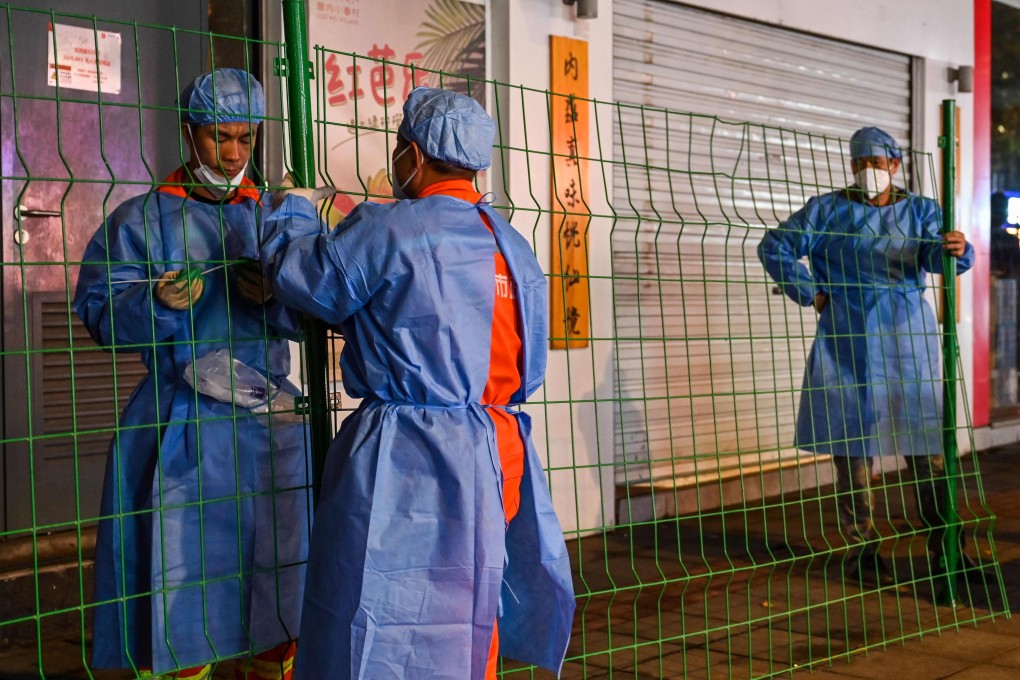Advertisement
Extreme zero-Covid rules in China ahead of Communist Party congress
- One city targets all people from another province with red health codes, while a county goes into complete ‘silence’ to prevent transmission
- Testing still deployed as a key line of defence against the coronavirus spreading
Reading Time:2 minutes
Why you can trust SCMP
8

Jane Caiin Beijing
With just a week to go until the Communist Party’s congress, local governments across China are doubling down on zero-Covid efforts, imposing measures such as pre-emptive lockdowns and blanket bans to quash coronavirus flare-ups.
The congress, held every five years, gets under way in Beijing next Sunday, and the tighter Covid-19 controls in place for the event prompted many people to abandon travel plans for the week-long National Day break.
While the public were advised to stay put during the holidays, they were allowed to travel. Anybody wishing to go to another province had to have a negative PCR test within 48 hours of leaving home and another upon arrival.
Advertisement
However, when many holidaymakers tried to return home, they came up against tougher curbs, from lockdowns to denial of entry and isolation, as jittery governments sought to cut chains of transmission.
China reported 1,748 new infections, most of them asymptomatic, across 28 provinces on Sunday.
Authorities in Ningbo, Zhejiang province, took the extreme measure of giving a red health code to all people from Henan in the city, according to an unverified document leaked on Saturday.
Advertisement
Select Voice
Select Speed
1.00x